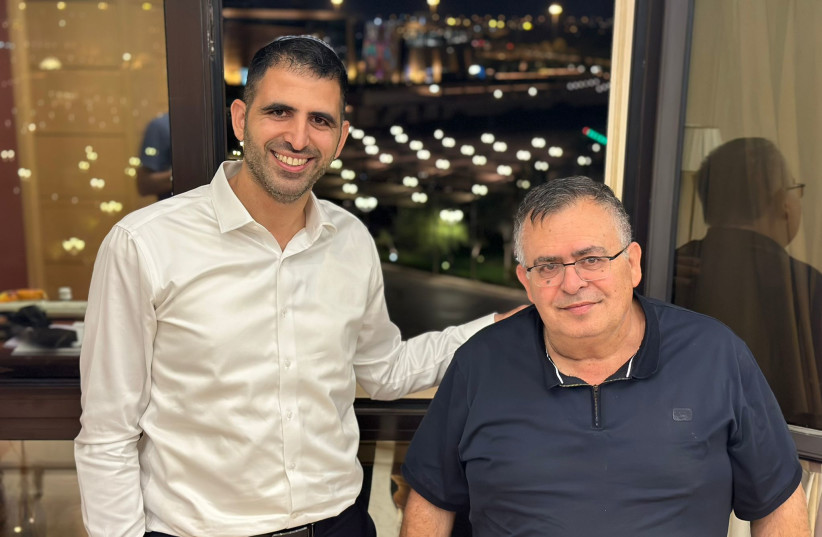Israeli minister’s historic speech in Saudi Arabia spurs diplomatic milestone
Communications Minister Shlomo Karhi made history on Wednesday as the first Israeli politician to deliver a speech in Saudi Arabia, a country that has no ties with the Jewish state.
“We greatly appreciate the tireless efforts of the leaders of Saudi Arabia, and our Prime Minister, Benjamin Netanyahu, for nurturing the blossoming ties between our nations,” Karhi told the University Postal Union’s Fourth Extraordinary Congress.
Speaking in English from his seat, Karhi wore a blue suit and a crocheted skullcap on his head and spoke into a handheld microphone.
Like all the speakers, who also used English, he addressed the country’s postal plans for the future explaining that he wanted to privatize that service.
US efforts toward Israeli-Saudi normalization
But his speech gave a nod to the US-led efforts underway to normalize Israeli-Saudi ties and was laced with symbolism about Israel’s push to build ties with its Arab neighbors.

“Today, as I stand before you, I am reminded of the great leaders of our past, who envisioned a world united in purpose, and bound by shared values,” Karhi said.
Then he held up a small optical fiber cable as a sign of how countries would unify in the future as he referenced the US-based India-Middle East-Europe Economic Corridor that US President Joe Biden unveiled last month. That cording linking India and Europe is expected to travel through Israel, Jordan, the United Arab Emirates and Saudi Arabia.
It is seen as an important precursor of Israeli-Saudi normalization.
“Behold, this slender strand of optical fiber,” Karhie said. “It may appear delicate, but it embodies the promise of a connected future. Envision, if you will, a vast digital highway, a conduit for huge amounts of data, connecting Asia and Arab countries to Europe, passing through Israel,” Karhi said.
“This is the same route that Abraham, our common ancestor, walked thousands of years ago,” he explained.
The project “isn’t just about data exchange; it is about a bridge between the East and West, a connection between diverse worlds. Through this, we are not only connecting countries but also hearts and minds,” he stressed.
Karhi also referenced the 2020 US-brokered Abraham Accords under whose auspices four Arab countries — the United Arab Emirates, Bahrain, Morocco and Sudan — agreed to normalize with Israel.
“As demonstrated by the Abraham Accords, when nations converge on mutual goals, the outcomes can be monumentally transformative,” Karhi said.
He ended by explaining that his Arabic accent was better than his English one and with a nod to his Tunisian ancestry spoke a line of blessing in that language wishing that “God would bring peace between us.”
His trip to Riyadh follows the first-ever ministerial visit to Saudi Arabia by Tourism Minister Haim Katz last week when he attended the United Nations World Tourism Organization Conference.
It comes as Washington is pressing for a security pact with Riyadh that would include the Israeli normalization deal and a possible interim agreement with the Palestinians.
As part of the push for that deal Hebrew language news site Wall reported on Wednesday that White House Coordinator for the Middle East and North Africa Brett McGurk and special energy envoy Amos Hochstein visited Saudi Arabia last Thursday to meet with the country’s Crown Prince Mohammed Bin Salman.
US Secretary of State Antony Blinken is also reportedly due to visit Israel and the West Bank.
US State Department Deputy spokesperson Vedant Patel told reporters in Washington on Tuesday that “many of the key elements of a pathway toward normalization are now on the table, and there is broad understanding of those elements.”
“The specifics require an incredible amount of legwork, diplomacy, discipline, rigor, and all of the stakeholders being deeply engaged in this. I will note, though, we don’t have a formal framework and we don’t have the terms ready to be signed. There’s still lots of work to do, and we’re continuing to work that process.”





Comments are closed.